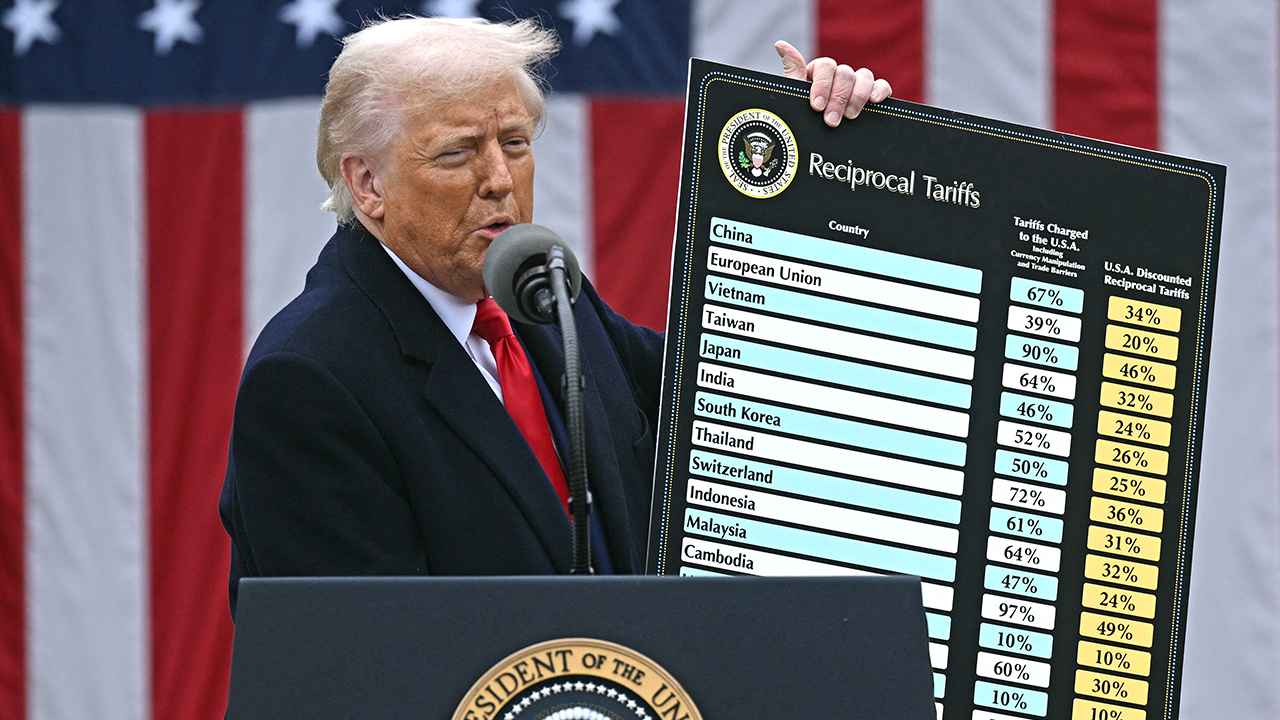Neither of the men vying to lead Britain after the July 4 vote offered an especially hopeful vision.
Just wait, Sunak said, things will get better, the full dividends of his policies are still to come, and he’ll add some new “bold” ones.
Starmer pointed to the past and asked voters if they could survive five more years of Conservative Party rule — “the arsonists handed back the matches.”
With the general election just a month away, this was a chance for the party leaders to get people’s attention. As in the United States, many voters in Britain don’t follow the daily social media battles of dueling campaigns, but they might catch some lines from a prime time TV debate.
Labour is coasting toward a big win, if the polls are right. So the party wanted no drama. The goal was for Starmer to appear prime ministerial, calm, commanding, offering “change” but not too much change. Labour has been trying to ratchet down the radical and focus on the pocketbook issues.
GET CAUGHT UP
Summarized stories to quickly stay informed
Conservatives had more riding on the debate. Trailing in the polls, Sunak’s side was praying the prime minister could have a game-changing night.
A snap poll conducted by YouGov found that 51 percent of people said Sunak won the debate, 49 percent said Starmer. That may be considered as a decent outing in Conservative circles. But it may not be enough.
Many voters have soured on the Tories after their 14 years in power and want to try something new.
Polling averages show Labour with 45 percent, the Conservatives with 24 percent and the upstart, rebooted Reform UK party at 11 percent. A YouGov poll released Monday suggested Starmer’s Labour could win a bigger majority than the party did under Tony Blair did in 1997 — and Conservatives could see their worst performance since 1906.
A result like that would mark a holy cow reversal of what happened in Britain’s last general election, in 2019, when Boris Johnson’s Conservatives trounced Labour’s left-wing Jeremy Corbyn under the banner “Get Brexit Done.”
In Tuesday’s debate, Starmer accused Sunak of trying to distance himself from his party’s record.
“I know the prime minister has already said in the first however minutes of this debate that he doesn’t want to have anything to do with the last 14 years, I’m sorry, Prime Minister, you may want to cast it off, but everybody else is living with it,” Starmer said.
Sunak accused Labour of only wanting to look at the past because it had no plan for the future. “If we want to transform our country for the better and deliver a secure future, you’ve got to have leaders who are prepared to do bold things,” he said.
A rare moment of agreement came when they were asked if “convicted criminal Donald Trump” would be someone they’d “want a special relationship with.”
“If he is elected president of the U.S., then we will deal with him,” Starmer said. “The special relationship transcends whoever fills the post of prime minister and president, because it’s such an important strong relationship.
Sunak concurred. “Yes, because having a strong relationship with our closest partner and ally in the United States is critical for keeping everyone in our country safe.”
The rest of the 60 minutes consisted of tetchy back-and-forth.
The two were almost breathless, talking over each other. The ITV moderator kept asking them to take a pause.
They only time they were still was when they were asked to promise they wouldn’t raise taxes. Neither could make the promise. Britain is in a hole, financially.
Starmer charged that the Conservatives had “lost control” of the economy, and that Sunak’s predecessor, Liz Truss, had “wrecked it.”
Lines about “fairness” got applause. Sunak said it wouldn’t be fair to raise taxes to pay young doctors more than they’d already been offered. Starmer stressed that it would be fair for the super rich to pay more taxes.
There was a question by Paula, an audience member, about the cost of living. She said she spends her weekends batch-cooking so she doesn’t have to turn her oven on at peak times.
Starmer stressed that “my dad worked in a factory, he was a toolmaker, my mom was a nurse, we didn’t have a lot of money when I was growing up, we were in a position on occasion where we couldn’t pay our bills, so I know how that feels. In our particular case, we had our phone cut off … I don’t think the prime minister quite understands the position that you and other people are in.”
Sunak said that he had helped to tame inflation and Labour would raise everyone’s taxes by 2,000 pounds.
There were shades of differences on immigration. Both men said they would consider outsourcing, sending people who entered Britain illegally to other countries. But they split on the question of human rights and international law.
Sunak said that if the European Court on Human Rights tried to block his planned deportation flights, he would quit the convention — a treaty that Britain helped to write. “If I’m forced to choose between securing our borders and our country’s security or a foreign court, I’m going to choose our country’s security every single time,” he said to applause.
Starmer got applause, too — for the opposite answer.
“We will not pull out of international agreements and international law which is respected the world over,” he said. “Because I want the U.K. to be a respected player on the global stage, not a pariah.”



















Discussion about this post